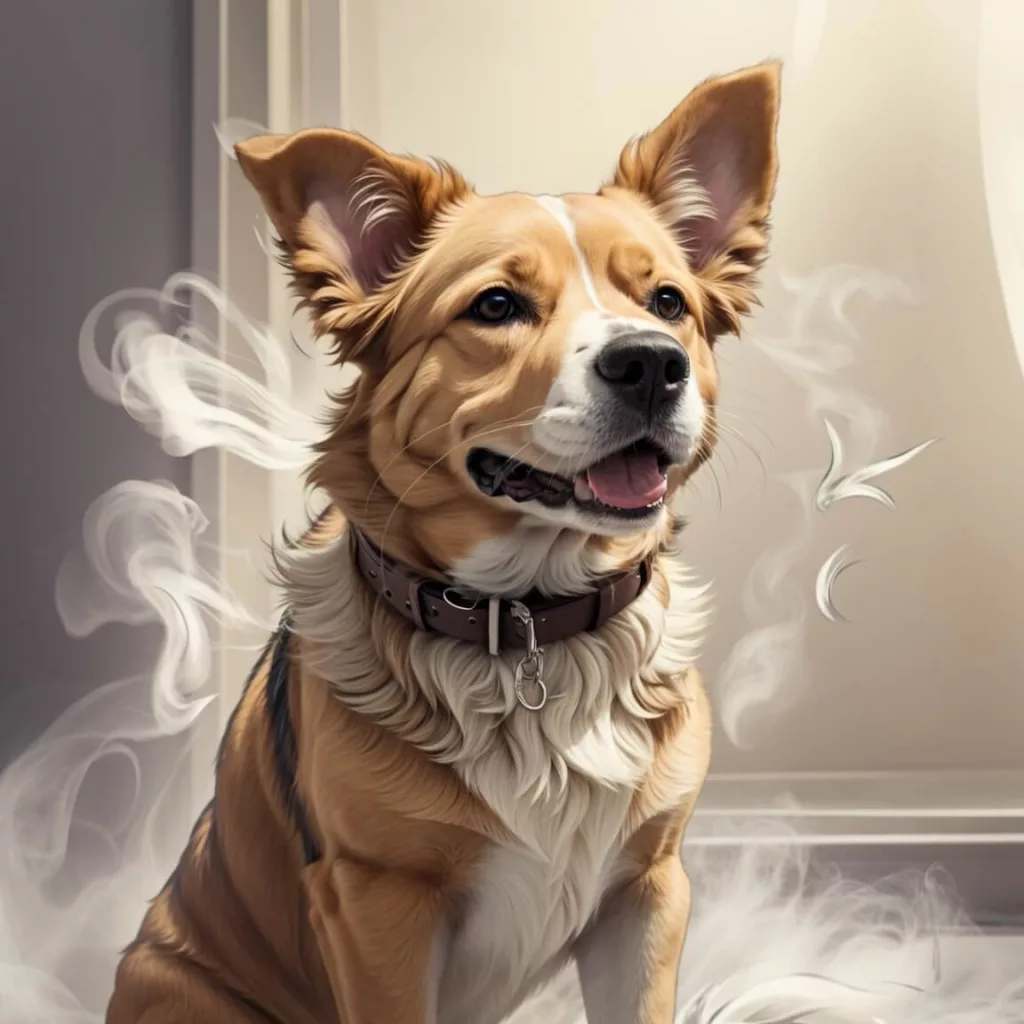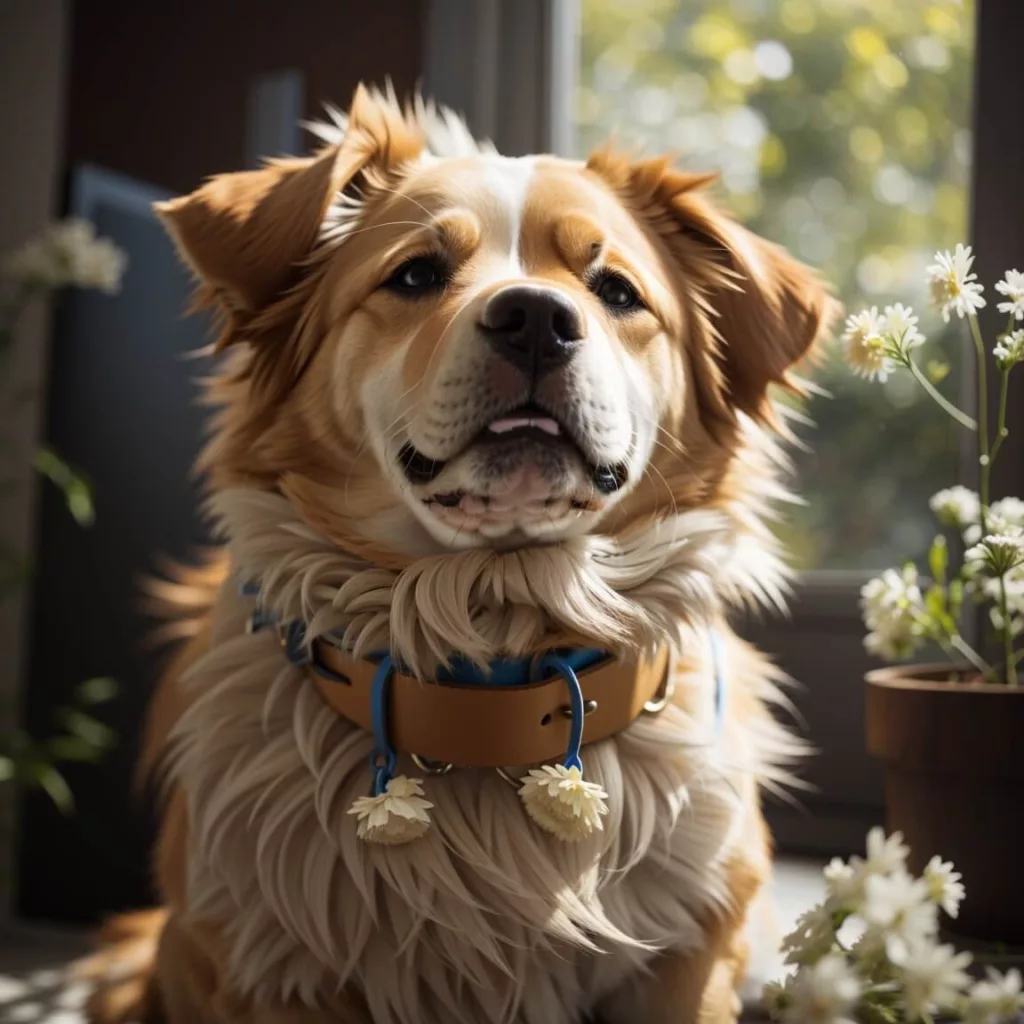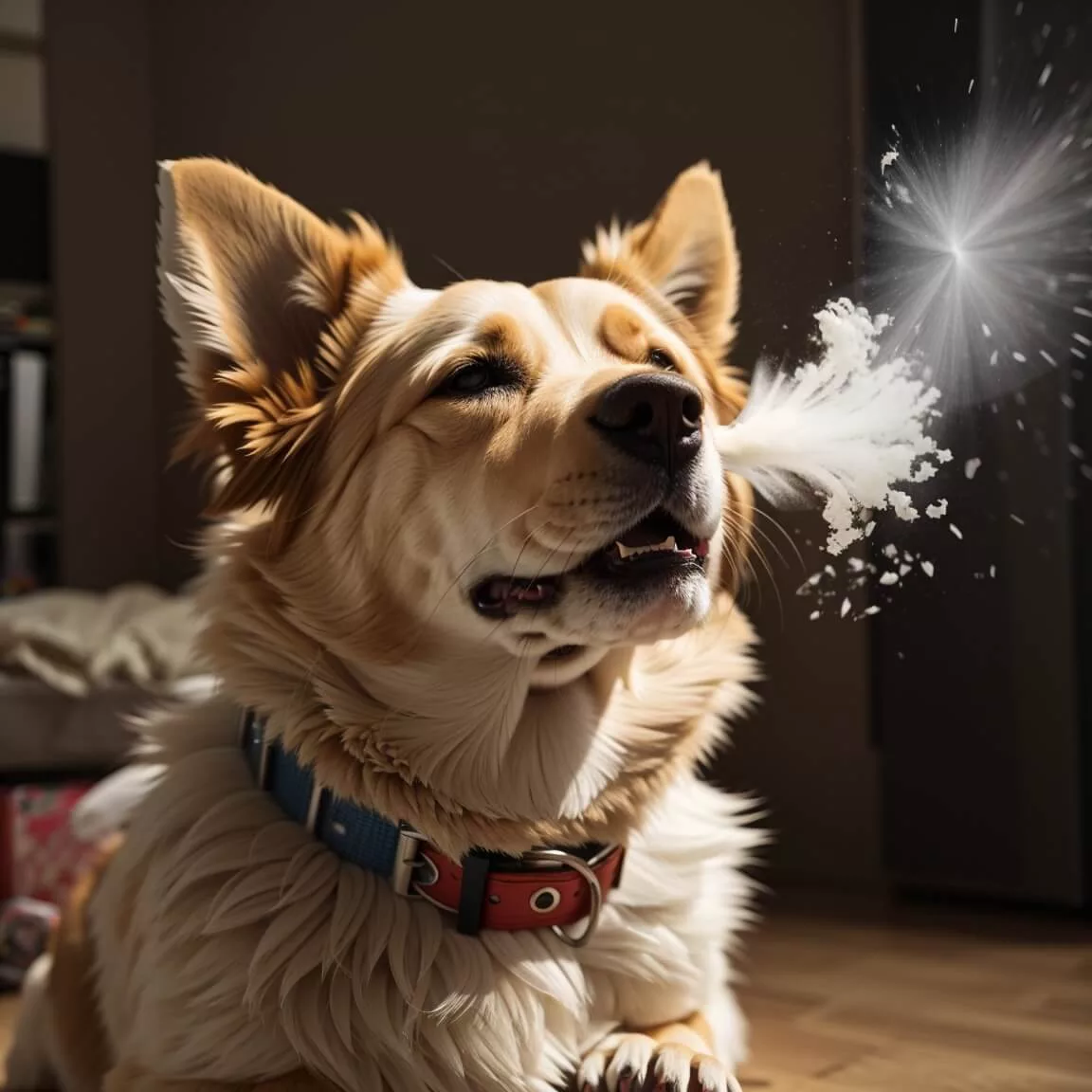Why Does My Dog Keep Sneezing? Uncover the Reasons and Don’t Make That Huge Mistake!

As a dog owner, I’ve often wondered why my dog keeps sneezing. Sneezing is a common occurrence in dogs, but sometimes it can be excessive, making us wonder if there’s a cause for concern. In this article, we’ll explore the various reasons behind canine sneezing, including dog allergies, nasal irritation, and other factors that might be causing your furry friend to sneeze. Understanding the causes and potential treatments for dog sneezing can help us keep our pets healthy and happy. So, let’s dive into the world of dog sneezing and learn more about this intriguing topic.
Common Causes of Dog Sneezing
There are several reasons why dogs sneeze, and understanding these causes can help you determine if your dog’s sneezing is a cause for concern. Some of the most common causes of sneezing in dogs include:
- Allergies and environmental irritants: Dogs can be sensitive to allergens like pollen, dust, and scented products, which can cause sneezing when inhaled.
- Infections and respiratory issues: Upper respiratory infections, whether fungal or bacterial, can cause sneezing in dogs. Infected tooth roots can also lead to sneezing.
- Foreign objects: Small objects, such as grass seeds or dirt, can get lodged in a dog’s nasal passages, causing irritation and sneezing.
- Nasal mites: These tiny parasites can infest a dog’s nasal passages, leading to sneezing and other symptoms.
- Dental problems: Issues like gum abscesses, rotten teeth, or infections in the roots of the teeth can cause sneezing in dogs.
- Nasal tumors: Although less common, nasal tumors can cause sneezing in dogs, especially if accompanied by other symptoms like bloody discharge.
- Canine communication: Dogs sometimes use sneezing as a form of communication with other dogs or their owners.
- Short snouts: Dogs with short snouts, such as pugs and bulldogs, may be more prone to sneezing due to their facial structure.
While some of these causes are more serious than others, it’s essential to monitor your dog’s sneezing and consult a veterinarian if you notice any additional symptoms or if the sneezing becomes excessive.
Allergies and Environmental Irritants

Dog allergies and environmental factors play a significant role in causing sneezing in our furry friends. Dogs can be sensitive to various allergens and irritants, which can trigger sneezing when inhaled or come into contact with their skin. Some common allergens and irritants include:
- Pollen: Pollen from trees, grasses, and weeds can cause sneezing in dogs, especially during specific seasons when these plants release their pollen.
- Dust and dust mites: These tiny particles and microscopic creatures found in our homes can trigger sneezing in dogs.
- Mold and mildew: The presence of mold and mildew in damp areas of our homes can cause allergic reactions in dogs, leading to sneezing.
- Household products: Cleaning products, detergents, and even carpet fibers can cause sneezing in dogs due to their sensitivity to certain chemicals.
- Cigarette or cigar smoke: Dogs can also be sensitive to smoke, which can cause sneezing and other respiratory issues.
It’s essential to be aware of these allergens and irritants in your dog’s environment and take steps to minimize their exposure. Regular cleaning, using pet-friendly products, and maintaining good air quality in your home can help reduce the likelihood of sneezing caused by allergies and environmental irritants.
Infections and Respiratory Issues

Infections and respiratory problems are other common causes of sneezing in dogs. These issues can lead to irritation and inflammation in the nasal passages, triggering sneezing as a response. Some of the infections and respiratory issues that can cause sneezing in dogs include:
- Upper respiratory infections: Both fungal and bacterial infections can cause sneezing in dogs. In some cases, these infections can even originate from an infected tooth root.
- Sinus infections: Dogs with tooth infections may also develop sinus infections, which can cause sneezing due to sinus pain and discharge.
- Lower respiratory infections: While less common, lower respiratory infections affecting the bronchi and lungs can also cause sneezing in dogs.
If your dog is sneezing and also showing other symptoms, such as coughing, wheezing, runny nose, or difficulty breathing, it’s essential to consult a veterinarian. They can diagnose the issue and recommend appropriate treatment to help your dog recover and prevent further complications.
Reverse Sneezing in Dogs
Reverse sneezing is a phenomenon that can be quite alarming for dog owners, as it may sound like your dog is struggling to breathe. However, it’s essential to understand that reverse sneezing is different from regular sneezing and is usually not a cause for concern.
What is Reverse Sneezing?
Reverse sneezing, also known as pharyngeal gag reflex or inspiratory paroxysmal respiration, is a spasm that occurs when the soft palate and throat muscles suddenly contract. This causes the dog to make a series of rapid, forceful inhalations through the nose, often accompanied by snorting or gagging sounds.
How Does Reverse Sneezing Differ from Regular Sneezing?
While regular sneezing involves a forceful exhalation of air through the nose and mouth, reverse sneezing involves rapid inhalations through the nose. The sounds produced during reverse sneezing can be quite distinct, often resembling snorting, gagging, or choking.

Common Triggers and Causes
Reverse sneezing can be triggered by various factors, such as:
- Irritation in the throat or nasal passages
- Allergens or environmental irritants
- Overexcitement or exercise
- Eating or drinking too quickly
What to Do When Your Dog Reverse Sneezes
In most cases, reverse sneezing is harmless and will resolve on its own within a few minutes. However, if your dog experiences frequent or prolonged episodes of reverse sneezing, it’s essential to consult a veterinarian to rule out any underlying health issues.
Signs of Serious Health Issues

While sneezing is a common occurrence in dogs, it’s essential to be aware of the signs that might indicate a more severe health problem. Some of these signs include:
- Persistent or excessive sneezing: If your dog’s sneezing becomes more frequent or doesn’t seem to improve over time, it could be a sign of an underlying issue that requires veterinary attention.
- Nasal discharge: Sneezing accompanied by a runny nose, especially if the discharge is thick, green, or bloody, could indicate an infection or other health problem.
- Difficulty breathing: If your dog is struggling to breathe or making wheezing sounds while sneezing, it could be a sign of a respiratory issue that needs medical attention.
- Facial swelling or pain: Swelling or pain around the nose or mouth could indicate a dental issue or an infection that’s causing your dog to sneeze.
- Loss of appetite or lethargy: If your dog is sneezing and also showing a lack of energy or interest in food, it could be a sign of a more serious health problem.
- Other symptoms: Sneezing accompanied by other symptoms, such as coughing, vomiting, or diarrhea, could indicate a more severe issue that requires veterinary care.
If you notice any of these signs in your dog, it’s essential to consult a veterinarian as soon as possible. They can diagnose the issue and recommend appropriate treatment to help your dog recover and prevent further complications.
Home Remedies and Treatments
If your dog is sneezing due to mild allergies or environmental irritants, there are several home remedies and treatments you can try to help alleviate their symptoms:
- Keep your home clean: Regularly vacuuming, dusting, and washing your dog’s bedding can help reduce allergens and irritants in your home.
- Use air purifiers: Air purifiers can help remove allergens and irritants from the air, providing relief for your sneezing dog.
- Humidifiers: Using a humidifier can help soothe your dog’s irritated nasal passages by adding moisture to the air.
- Saline nasal drops: Saline nasal drops can help relieve nasal congestion and irritation in dogs. Consult your veterinarian for the appropriate dosage and application method.
- Over-the-counter antihistamines: Some over-the-counter antihistamines, such as Benadryl, can help alleviate sneezing caused by allergies. Always consult your veterinarian before administering any medication to your dog, as they can provide the correct dosage and ensure it’s safe for your pet.
- Coconut oil: Some dog owners have found that adding a small amount of coconut oil to their dog’s food can help reduce sneezing caused by allergies. Coconut oil has anti-inflammatory properties that may help soothe irritated nasal passages.
- Herbal remedies: Some herbal remedies, such as quercetin and butterbur, have been reported to help alleviate sneezing in dogs. However, it’s essential to consult your veterinarian before trying any herbal remedies, as they can advise on the safety and effectiveness of these treatments for your dog.
Remember, if your dog’s sneezing persists or worsens, or if they exhibit additional symptoms, it’s crucial to consult a veterinarian for a proper diagnosis and treatment plan.
Prevention and Management
Preventing and managing sneezing in dogs involves reducing their exposure to allergens and maintaining a clean environment. Here are some tips to help you prevent and manage sneezing in your dog:
- Keep your home clean: Regularly vacuum, dust, and wash your dog’s bedding to minimize allergens and irritants in your home.
- Use air purifiers: Air purifiers can help remove allergens and irritants from the air, providing relief for your sneezing dog.
- Maintain a clean outdoor environment: Keep your yard clean and free of debris, such as leaves and grass clippings, to reduce allergens and irritants that can cause sneezing.
- Avoid strong chemicals and fragrances: Using pet-friendly cleaning products and avoiding strong fragrances can help decrease irritants that may cause sneezing in your dog.
- Consider a limited ingredient diet: If your dog’s sneezing is caused by food allergies, a limited ingredient diet may help alleviate their symptoms.
- Regular grooming: Regularly grooming your dog can help remove allergens and irritants from their fur, reducing the likelihood of sneezing.
- Monitor your dog’s health: Keep an eye on your dog’s overall health and consult a veterinarian if you notice any changes in their sneezing patterns or other symptoms.
By following these tips, you can help prevent and manage sneezing in your dog, ensuring they remain comfortable and healthy.
When to Consult a Veterinarian
It’s essential to consult a veterinarian about your dog’s sneezing and related symptoms in the following situations:
- Persistent or excessive sneezing: If your dog’s sneezing doesn’t improve over time or becomes more frequent, it’s crucial to seek veterinary advice.
- Additional symptoms: If your dog is sneezing and also displaying other symptoms, such as coughing, wheezing, runny nose, difficulty breathing, or facial swelling, it’s essential to consult a veterinarian.
- Change in behavior: If your dog’s sneezing is accompanied by a change in their behavior, such as loss of appetite, lethargy, or increased anxiety, it’s crucial to seek veterinary care.
- Home remedies aren’t working: If you’ve tried home remedies and treatments to alleviate your dog’s sneezing, but their condition hasn’t improved or has worsened, it’s essential to consult a veterinarian.
- Concern for a more severe issue: If you suspect that your dog’s sneezing might be due to a more serious health problem, such as a nasal tumor or dental issue, it’s crucial to seek veterinary care as soon as possible.
Remember, it’s always better to err on the side of caution when it comes to your dog’s health. Consulting a veterinarian can help ensure that your dog receives the appropriate care and treatment for their sneezing and any underlying issues.
Conclusion
In this article, we’ve explored the various reasons behind dog sneezing, including allergies, infections, foreign objects, and other factors. We’ve also discussed the phenomenon of reverse sneezing and how it differs from regular sneezing. By understanding the causes and potential treatments for dog sneezing, you can better care for your furry friend and ensure their comfort and well-being.
It’s essential to monitor your dog’s sneezing and consult a veterinarian if you notice any additional symptoms or if the sneezing becomes excessive. By following the tips provided on prevention and management, you can help reduce your dog’s exposure to allergens and maintain a clean environment for them.
Remember, as a responsible dog owner, it’s crucial to stay vigilant and seek professional advice when needed. With the right care and attention, you can help your dog live a happy, healthy life, free from sneezing issues.
FAQ: Why Does My Dog Keep Sneezing?
Below are some frequently asked questions related to the topic of dog sneezing, along with their answers:
- What are the common causes of sneezing in dogs? Common causes include allergies, infections, foreign objects, nasal mites, dental problems, nasal tumors, canine communication, and short snouts.
- Can allergies cause my dog to sneeze frequently? Yes, allergies to pollen, dust, and other environmental irritants can cause frequent sneezing in dogs.
- How can I tell if my dog’s sneezing is due to an allergy or an infection? Allergies often cause sneezing along with itching and watery eyes, while infections may be accompanied by nasal discharge, coughing, or fever. Consult a veterinarian for a proper diagnosis.
- Are certain dog breeds more prone to sneezing than others? Dogs with short snouts, such as pugs and bulldogs, may be more prone to sneezing due to their facial structure.
- Can environmental factors, such as pollen or dust, trigger sneezing in dogs? Yes, environmental factors like pollen and dust can cause sneezing in dogs, especially if they are sensitive to these allergens.
- How can I help my dog if they are sneezing due to allergies? Keep your home clean, use air purifiers, and consult a veterinarian for appropriate treatments, such as over-the-counter antihistamines.
- Is frequent sneezing a sign of a more serious health issue in dogs? Frequent sneezing can be a sign of a more serious issue, such as a nasal tumor or dental problem. Consult a veterinarian if your dog’s sneezing persists or worsens.
- Can a foreign object stuck in my dog’s nose cause sneezing? Yes, small objects like grass seeds or dirt can get lodged in a dog’s nasal passages, causing irritation and sneezing.
- How can I tell if my dog’s sneezing is a sign of a respiratory infection? Sneezing accompanied by other symptoms, such as coughing, wheezing, runny nose, or difficulty breathing, may indicate a respiratory infection. Consult a veterinarian for a proper diagnosis.
- What should I do if my dog is sneezing and also has a nasal discharge? Consult a veterinarian, as this could indicate an infection or other health issue.
- Can changes in weather or temperature cause my dog to sneeze more often? Yes, changes in weather or temperature can cause some dogs to sneeze more often, especially if they are sensitive to environmental allergens.
- How can I prevent my dog from sneezing due to environmental irritants? Keep your home clean, use air purifiers, and minimize your dog’s exposure to allergens and irritants.
- Are there any over-the-counter medications that can help reduce my dog’s sneezing? Over-the-counter antihistamines, such as Benadryl, can help alleviate sneezing caused by allergies. Consult your veterinarian before administering any medication to your dog.
- When should I consult a veterinarian about my dog’s sneezing? Consult a veterinarian if your dog’s sneezing persists, worsens, or is accompanied by other symptoms, such as coughing, wheezing, or nasal discharge.
- Can a dog’s sneezing be a symptom of a dental issue? Yes, dental issues like gum abscesses, rotten teeth, or infections in the roots of the teeth can cause sneezing in dogs.
- How can I tell if my dog’s sneezing is due to a more serious condition, such as a nasal tumor? Sneezing accompanied by other symptoms, such as bloody discharge or facial swelling, may indicate a more serious condition. Consult a veterinarian for a proper diagnosis.
- Are there any home remedies that can help alleviate my dog’s sneezing? Home remedies include keeping your home clean, using air purifiers, and trying over-the-counter antihistamines (with veterinarian approval).
- Can stress or anxiety cause my dog to sneeze more frequently? Stress or anxiety can cause some dogs to sneeze more frequently, although it’s not a common cause of sneezing.
- Is it normal for puppies to sneeze more often than adult dogs? Puppies may sneeze more often due to their developing immune systems and increased curiosity, which can lead to more exposure to allergens and irritants.
- Can certain foods or treats cause my dog to sneeze? Some dogs may be sensitive to specific ingredients in their food or treats, which can cause sneezing. Consult a veterinarian if you suspect a food allergy.
Hi, I’m John and I love dogs. Ever since I was a kid, I always wanted to have a furry friend by my side. I grew up with a golden retriever named Max, who taught me a lot about loyalty, friendship, and fun. He was my best buddy for 12 years, and I miss him every day.
